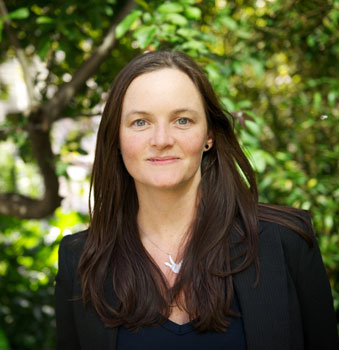Rainforest Action Network
Gemma Tillack and Chelsea Matthews
September 15, 2013

The Rainforest Action Network (RAN) conducts campaigns to protect rainforests, their inhabitants, and the natural, life-sustaining systems through education, grassroots organizing, and non-violent direct action.
For updated information on recent success follow this link: http://www.humanists.org/blog/wp-content/uploads/2013/10/Updated-info.pdf
Gemma Tillack directs RAN’s agribusiness campaign. She will talk about RAN’s newest campaign, Last Stand of the Orangutan. This campaign exposes the dark secret of palm oil usage in the US snack food industry, and its effects on the natural habitat of the Orangutan. The Network calls on companies to commit to purchase only responsibly grown palm oil.

Chelsea Matthews, Forest Program Coordinator at RAN, will talk about RAN’s current campaigns to address the root causes of climate change, deforestation, and the oppression of forest peoples. She will also give an overview of RAN’s success in transforming the global marketplace through education, grassroots organizing, and non-violent direct action.
Gemma Tillack directs Rainforest Action Network’s Agribusiness campaign which is addressing one of the main drivers of rainforest destruction in Indonesia: industrial palm oil. The campaign is focused on shifting demand away from socially and environmentally irresponsible palm oil, creating incentives for the responsible production of palm oil and transforming global supply chains. RAN’s campaigns create the market leverage necessary to improve both corporate and government policies and practices.
Prior to this position, Tillack worked for 10 years for The Wilderness Society in Australia. Tillack played a key role in the campaigns that contributed to Gunns Limited’s decision to transition out of native forest logging in Tasmania. Gunns Limited was Australia’s largest native forest logging and wood chipping company. For the past two years Tillack has been involved in negotiations that lead to the signing of the $274 million Tasmanian Forest Intergovernmental Agreement (TFIGA). This agreement was reached between environment Non-Government Organizations, the forestry industry and unions and aims to support the protection of important natural forests and a transition to a plantation based forestry sector in Tasmania. Tillack has a background in environmental science and community organizing.
Here are a few links you can share with people who want to learn more about Rainforest Action Network:
http://www.ran.org/our-mission – learn more about Rainforest Action Network and its campaigns for the forests, their inhabitants and the natural systems that sustain life by transforming the global marketplace through education, grassroots organizing and non-violent direct action.
http://understory.ran.org/ – read RAN’s blog for breaking stories.
http://www.ran.org/palm-oil – learn about RAN’s campaign to protect rainforests and Indigenous Peoples and rural communities rights from palm oil expansion.
Conflict Palm Oil report: http://www.ran.org/conflict-palm-oil
Petition calling on the Snack Food 20 to cut Conflict Palm Oil from their supply chains: http://act.ran.org/p/dia/action3/common/public/?action_KEY=8546
Webpage for donations: https://salsa.wiredforchange.com/o/6022/t/6444/p/d/rd_ran/donations/public/ran_donate_custom.sjs?donate_page_KEY=7315
http://www.ran.org/take-action-online – find out how you can take action to support RAN’s work.
———————————————————————
The Humanist Community
September 15, 2013
Addendum
Frederic March, a past president of the Humanist Society of New Mexico, has written an essay titled “Utopian Visions and the American Dream” published in Volume 21 (1) 2013 of Essays in the Philosophy of Humanism”. This “Addendum” is an abstract from his essay.
Utopian narratives express a universal yearning for a better human society. In his description of Plato’s ideal social fantasy, Bertrand Russell categorizes its attributes as education, culture/economy, biological control, religion, and justice. Although Frederic March develops all of these attributes in his essay, in this “Addendum” we shall deal primarily with education.
As our nation’s leading advocate for humanism, the AHA helps defend our democracy against breaches in the barriers of church-state separation. It promotes science and evolution teaching unadulterated by theology. It defends freedom of thought and religion.
The AHA recently issued its Ten Commitments: Guiding Principles for Teaching Values in America’s Public Schools:
1. Altruism – Altruism is the unselfish concern for the welfare of others without expectation of reward, recognition or return.
2. Caring for the World Around Us – Everyone can and ought to play a role in caring for the earth and its inhabitants.
3 Critical Thinking – We gain reliable knowledge because we are able to observe, report, experiment, and analyze what goes on around us.
4. Empathy – We human beings are capable of empathy, the ability to understand and enter imaginatively into another living being’s feelings, the sad ones and the happy ones as well.
5. Ethical Development – Questions of fairness, cooperation, and sharing are among the first moral issues we encounter in our ethical development as human beings.
6. Global Awareness – We live in a world that is rich in cultural, social and individual diversity, a world where interdependence is increasing rapidly so that events anywhere are more likely to have consequences everywhere.
7. Human Rights – Human Rights is the idea that people should have rights just because they are human beings.
8. Peace and Social Justice – A curriculum that values and fosters peace education would promote understanding, tolerance, and friendship among nations as well as among cultural and religious or philosophical groups.
9. Responsibility – Our behavior is morally responsible when we tell the truth, help someone in trouble, and live up to promises we’ve made.
10. Service and Participation – Life’s fulfillment can emerge from an individual’s participation in the service of humane ideals.
These Commitments clearly encompass Education for Democracy. The AHA has the capacity to organize and coordinate the resources of many organizations that also seek to educate for a humanist democracy
These addendums are an attempt by Hilton Brown to bring some aspects of Humanist Philosophy to the attention of persons interested in The Humanist Community. The source material for all Addendums is to be found in the lead paragraph of each addendum.
